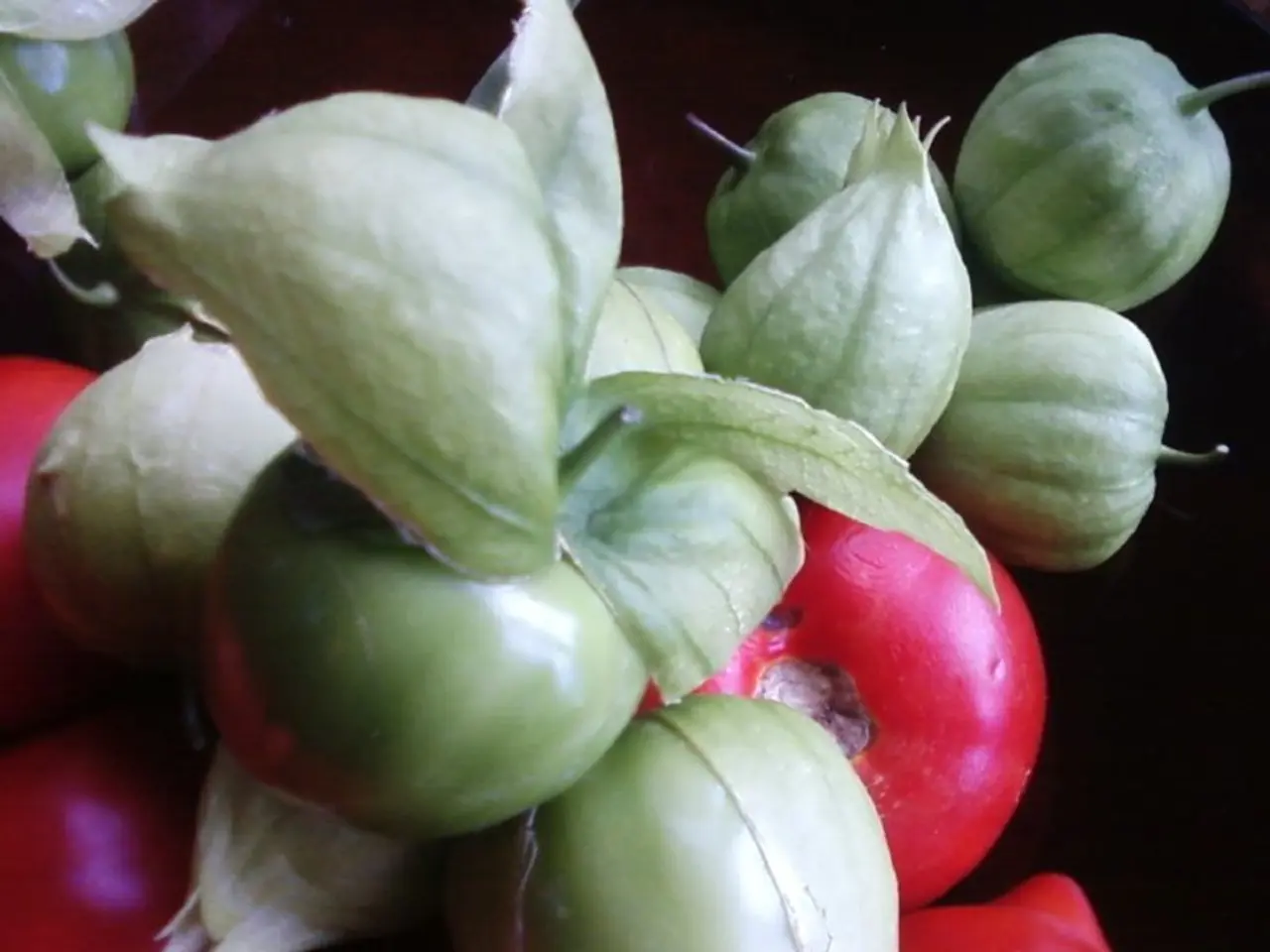Driving India Toward a $970 Million Vegetable Seed Center: Strategic Innovation, Research, and Government Policy Changes by 2030
India is on the brink of becoming a major player in the global vegetable seed market, according to experts. The country's vegetable seed sector already supports over 100,000 direct jobs and has profound socio-economic ripple effects, particularly empowering women smallholders and offering year-round income stability in rural areas.
Dr P K Singh, Agriculture Commissioner at the Ministry of Agriculture & Farmers Welfare, Government of India, attributes India's rise in horticulture, particularly vegetable production, to rich germplasm, diverse growing conditions, R&D innovations, and strategic investments.
Currently, the domestic vegetable seed market in India is valued at $740 million and is projected to grow at a Compound Annual Growth Rate (CAGR) of 4.6%, reaching $970 million by 2030. The larger South and Southeast Asia seed market is expected to exceed $12 billion by 2033, driven by innovation and government agricultural initiatives.
The Ministry of Agriculture & Farmers Welfare is taking steps to drive the growth of India’s vegetable seed market and position India as a global seed hub. These efforts include science-based regulatory reforms, digital transformation, streamlined approvals, and infrastructure investments.
Key recommendations include the implementation of QR code-based digital seed traceability through platforms like SATHI, investment in seed infrastructure, streamlining licensing systems, and single-window export clearance. Longer-duration licenses are also being considered to provide stability and encourage investment in seed development and marketing.
Addressing policy bottlenecks such as clearing over 100 pending Pest Risk Analyses (PRAs) is also a priority. These hurdles have held back trade worth $55 million since 2016. The Ministry is also encouraging coordinated government support to boost seed exports primarily to Southeast Asia and the Middle East, aiming to double or triple current export values.
Modern technologies, including precision breeding, biotechnology, and perhaps greater acceptance of genetically modified seeds, are also being promoted to enhance crop resilience and yields. Nutritionally enhanced vegetables are addressing hidden hunger by providing essential micronutrients at scale.
These steps aim to provide farmers with timely access to quality seeds, reduce crop losses, improve productivity, and expand India's seed exports globally. The seeds of global leadership in the vegetable seed market have already been sown in India, with the country currently exporting approximately $120 million worth of vegetable seeds annually, mainly to Southeast Asia and the Middle East.
Mr Rajvir Rathi, Vice Chairman of FSII, Director of Agricultural Affairs & Policy at IBSL, and Lead of Traits Licensing at Bayer CropScience Ltd., has called for a unified regulatory approach, the "One Nation, One Licence" model for domestic seed registration, and a single-window export clearance system.
Mr. Ajeet Kumar Sahu, IAS, Joint Secretary (Seeds), Ministry of Agriculture & Farmers Welfare, stated that India's seed sector is at a defining moment and has the potential to become a global seed production hub. The conference concluded with a strong consensus that India must reform fast, innovate continuously, and position itself as the world's most reliable and responsible supplier of high-quality vegetable seeds.
- The vegetable seed sector in India offers profound socio-economic benefits, particularly empowering women smallholders and providing year-round income stability in rural areas.
- Innovations in R&D and strategic investments have contributed to India's rise in horticulture, especially vegetable production.
- The domestic vegetable seed market in India is projected to grow at a CAGR of 4.6% and reach $970 million by 2030.
- The Ministry of Agriculture & Farmers Welfare is focusing on science-based regulatory reforms, digital transformation, and infrastructure investments to grow India’s vegetable seed market.
- QR code-based digital seed traceability, investment in seed infrastructure, and streamlining licensing systems are key recommendations to drive market growth.
- Addressing policy bottlenecks, such as clearing pending Pest Risk Analyses (PRAs), is essential to boost seed exports and trade potential.
- Modern technologies like precision breeding, biotechnology, and genetically modified seeds are being promoted to enhance crop resilience, yields, and address hidden hunger through nutritionally enhanced vegetables.
- Fostering a unified regulatory approach, implementing the "One Nation, One Licence" model, and establishing a single-window export clearance system are crucial for accelerating the growth of India's seed sector.
- India has the potential to become a global seed production hub and must reform swiftly, innovate continuously, and position itself as the world's most reliable and responsible supplier of high-quality vegetable seeds.




